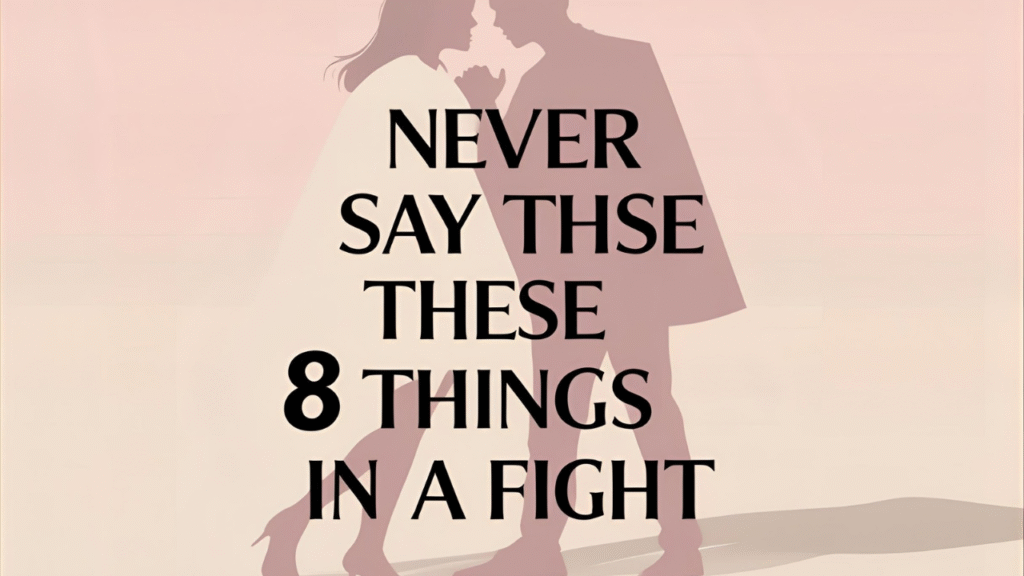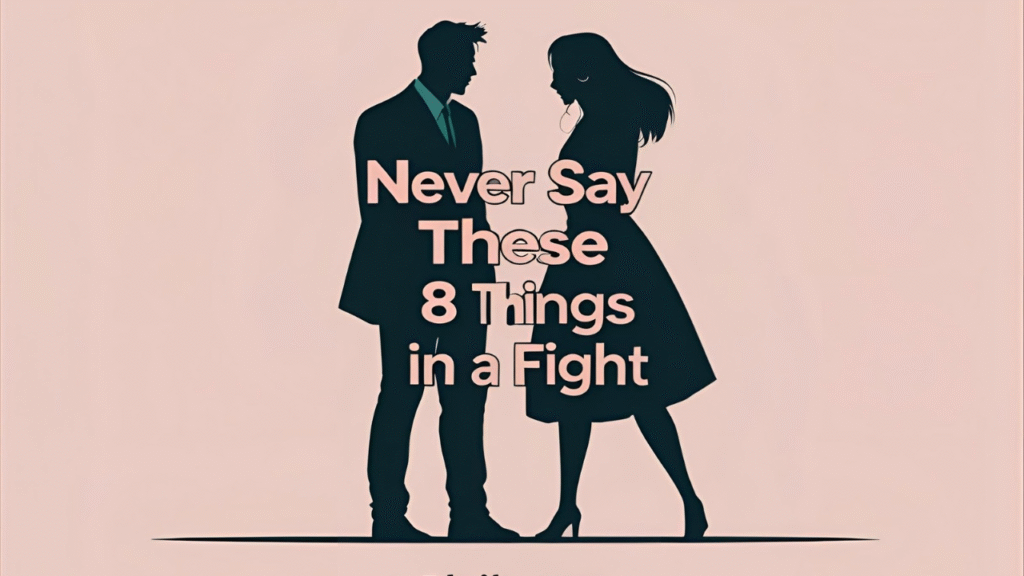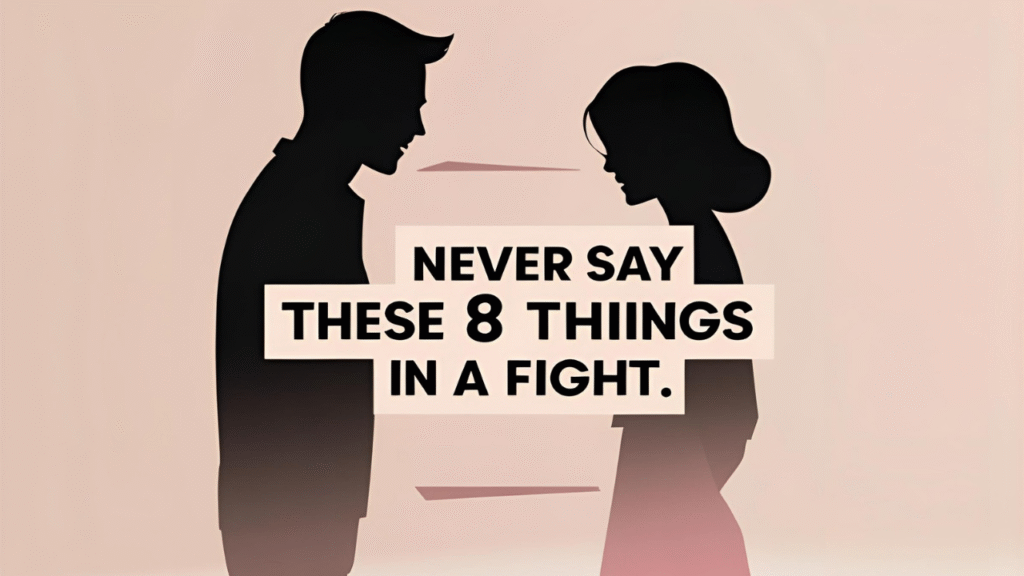Fights are a natural part of any relationship. They help release bottled-up feelings, express concerns, and clear misunderstandings. But sometimes, words said in anger can do more harm than good. In fact, what you say during an argument can either build a stronger bond—or permanently damage it. That’s why it’s important to know what not to say during a fight with your partner. This article explores 8 common phrases that can deeply hurt your relationship and offers healthier ways to express your feelings.

- “You Always…” or “You Never…”
These phrases sound like personal attacks. When you say, “You always ignore me” or “You never listen,” it puts your partner on the defensive. It makes them feel like their entire effort in the relationship is being dismissed.
Try Instead:
“I feel hurt when I don’t feel heard.” This shifts the conversation from blame to your emotions, which is easier to understand and less combative.
- “I Don’t Care Anymore”
Even if you’re overwhelmed, saying this implies that the relationship doesn’t matter to you. It creates fear and emotional distance. Once spoken, it’s hard to take back.
Try Instead:
“I need a little time to calm down before we talk more.” This shows you care enough to step back and come back when you’re ready to resolve it.
- “You’re Just Like Your Mother/Father”
Bringing in a family comparison feels like a low blow. It shifts the argument from the present issue to a personal insult and can deeply wound your partner’s feelings.
Try Instead:
Focus on the specific behavior that bothered you without comparing. For example, “I felt uncomfortable when you spoke that way earlier.”
- “Whatever.”
This one-word response shuts down communication. It sounds dismissive and disrespectful. It tells your partner that you don’t value their thoughts.
Try Instead:
“I’m feeling overwhelmed. Let’s take a break and talk later.” This keeps the door open for productive dialogue instead of closing it.
- “You’re Overreacting”
Invalidating your partner’s emotions is one of the fastest ways to make them feel unheard and unsupported. Everyone’s emotional response is valid to them.
Try Instead:
“I didn’t see it that way, but I want to understand how it made you feel.” This shows empathy and a willingness to listen.

- “I Hate You”
No matter how angry you are, saying “I hate you” can cause permanent emotional damage. Even if you didn’t mean it, it can replay in your partner’s mind long after the fight ends.
Try Instead:
“It’s hard for me to stay calm right now, but I want us to work through this.” Express anger without breaking the emotional safety in your relationship.
- “Maybe We Should Just Break Up”
Threatening to leave during every fight weakens the stability of your relationship. It feels manipulative and creates fear, even if you don’t truly mean it.
Try Instead:
“I’m really upset, but I want us to solve this—not walk away.” Commitment during conflict builds trust.
- “You’re Too Sensitive”
This minimizes your partner’s emotions and makes them feel like their feelings are a problem. It can lead them to shut down emotionally or withdraw.
Try Instead:
“I didn’t realize that would hurt you. Help me understand what you felt.” Validate before you respond.
🧠 Why These Words Hurt
During arguments, emotions run high and self-control lowers. But words spoken in anger often stick longer than the issue itself. Many couples break trust not over the fight—but over how the fight was handled. These phrases listed above hurt because they make your partner feel dismissed, insulted, or unloved.

🛠️ What to Do Instead
Use “I” statements instead of “You” statements
Take short breaks when you feel overwhelmed
Focus on the problem, not the person
Listen to understand, not to respond
Don’t bring up past issues in every fight
Show emotional maturity even when it’s tough
💬 Example: Bad vs. Better
❌ Bad: “You never do anything right.”
✅ Better: “I felt frustrated when the task wasn’t completed how we planned. Can we figure out a better way together?”
🧩 Repairing After a Fight
If you’ve already said something hurtful, apologize sincerely. Acknowledge your mistake without defending it. Reassure your partner that you care more about the relationship than winning an argument.
Say this:
“I said things I didn’t mean. I’m sorry for hurting you. Can we talk about how to move forward together?”
✅ Final Thoughts
Every relationship has its highs and lows, but emotional safety during fights is what separates strong relationships from weak ones. Knowing what not to say during a fight is just as important as knowing how to express your feelings. Use this article as your personal guide to building healthier, more loving conversations—even during conflict.


